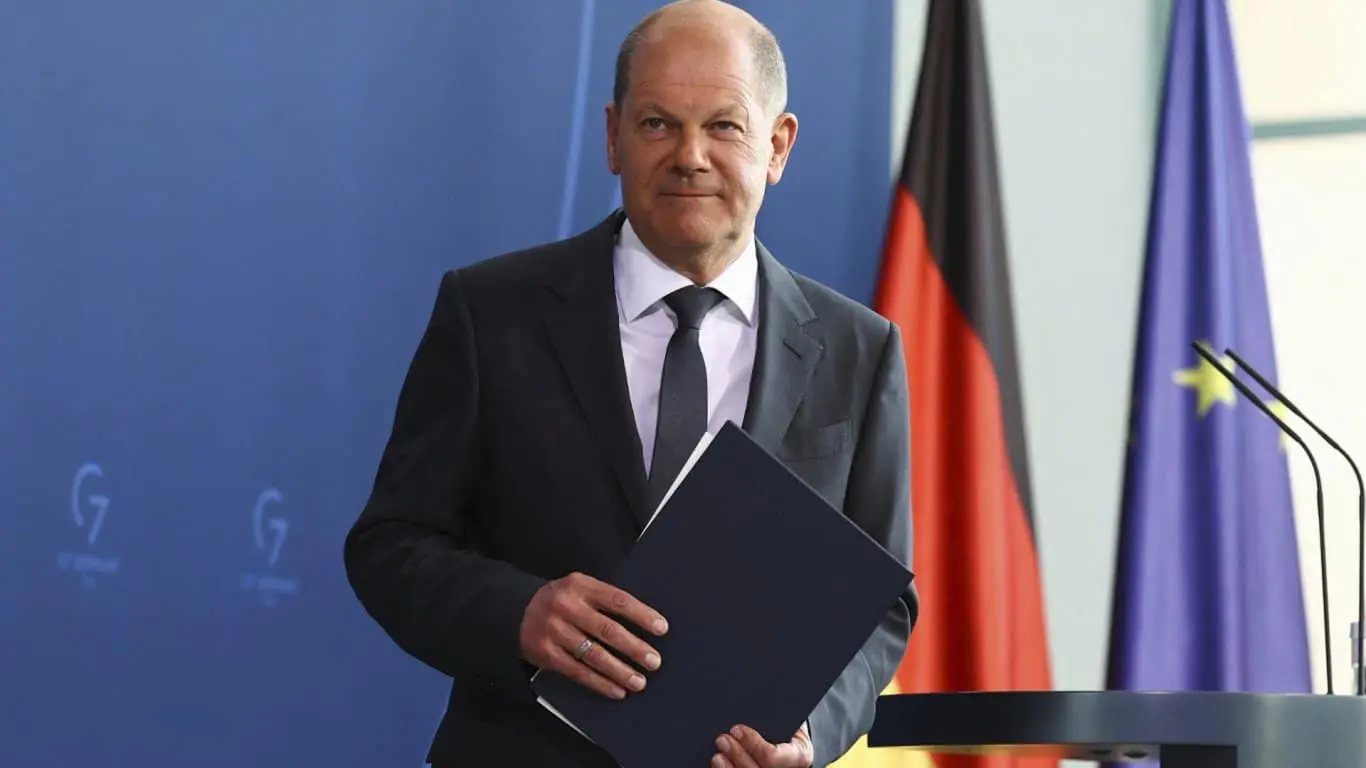German Chancellor Olaf Scholz voiced support for plans to modernize EU structures and decision-making. Ten days ago, the European Parliament activated a process to amend the EU Treaties, including the “abolition of the right of veto”.
“It will not be possible to solve everything that is decided today with unanimity, again with unanimity in the future,” the German chancellor said in an interview with DPA, quoted by BTA. He said he hoped to present his proposals at the EU summit on Thursday and Friday, at which the candidacies of Georgia, Moldova and Ukraine will be discussed.
According to him, the European Union should make it easier for new countries to join. It is time not only for the candidate countries, but for the European Union itself to prepare for the club’s expansion, Scholz said.
In the interview, Scholz called on Russia to alleviate the global food crisis by helping secure grain supplies from blocked Ukrainian ports.
“Russia must provide safe transport while giving assurances that it will not use the invasion corridor,” Scholz said.
On Thursday, after meeting with Scholz and other European leaders in Kyiv, Ukrainian President Volodymyr Zelensky criticized Russia for causing a food crisis in parts of Africa and Asia by blocking grain exports with its naval blockade. Russia, for its part, says exports have been suspended due to sea mining and sanctions.
In an interview, the German chancellor supported UN Secretary-General Antonio Guterres’ efforts to create an export corridor, but declined to comment on the possibility of a UN mission to provide access to Ukrainian ports such as Odessa.
According to the European Parliament’s press office, Parliament has adopted a resolution calling on the European Council to agree to launch a process of revising the EU Treaties.
Given the many ongoing and recent crises, MEPs have taken advantage of their prerogatives to call for amendments to the Treaties by:
• reforming the voting procedures in the Council in order to increase the European Union’s capacity to act, including the transition from unanimity to qualified majority voting, in areas such as sanctions, the so-called “Transition clauses” as well as in the event of an emergency;
• adapting the EU’s powers, in particular in the field of health and cross-border health threats, to the completion of an energy union based on energy efficiency and renewable energy and established in accordance with international agreements on climate change mitigation , as well as in the field of defense and social and economic policies;
• ensuring the full implementation of the European Pillar of Social Rights and inclusion in the Treaties of social progress under Article 9 TFEU, linked to a protocol on social progress;
• strengthening the resilience of the EU economy, with a special focus on small and medium-sized enterprises and competitiveness checks, and encouraging investment in a fair, green and digital transition;
• giving Parliament the right to initiate, amend or repeal legislation, and full co-decision rights on the EU budget; and
• strengthening the procedure for the protection of the values on which the EU is founded, clarifying the identification and consequences of violations of fundamental values (Article 7 TEU and the Charter of Fundamental Rights of the European Union);
The resolution was adopted by 355 votes to 154, with 48 abstentions, following a debate earlier in the day.
Next steps
The Heads of State and Government of the 27 Member States will be able to decide on the establishment of a Convention by a simple majority during the European Council. Many MEPs called for this to happen as soon as possible, ie. at the EU Summit on 23-24 June to ensure that citizens’ expectations are met and that the results of the Conference on the Future of Europe are put to good use as soon as possible. The Convention should include Members, Commissioners, Members of the Member States’ parliaments and EU leaders.
The European Commission is expected to announce in mid-June how it intends to take further action on the Conference. The Committee on Constitutional Affairs of the European Parliament (AFCO) will continue to work on the changes that Parliament will seek to make to the Treaties, pending the Convention.
Context On 9 May in Strasbourg, EP President Roberta Mezzola, French President Emmanuel Macron on behalf of the EU Council Presidency and European Commission President Ursula von der Leyen received her final report from the Co-Chairs of the Conference’s Executive Board. It includes 49 proposals, including more than 300 measures on 9 topics, based on 178 recommendations from European Citizens’ Panels, contributions from national panels and events, ideas from the European Youth Event and 43,734 opinions on 16,274 ideas recorded on the multilingual digital platform.







